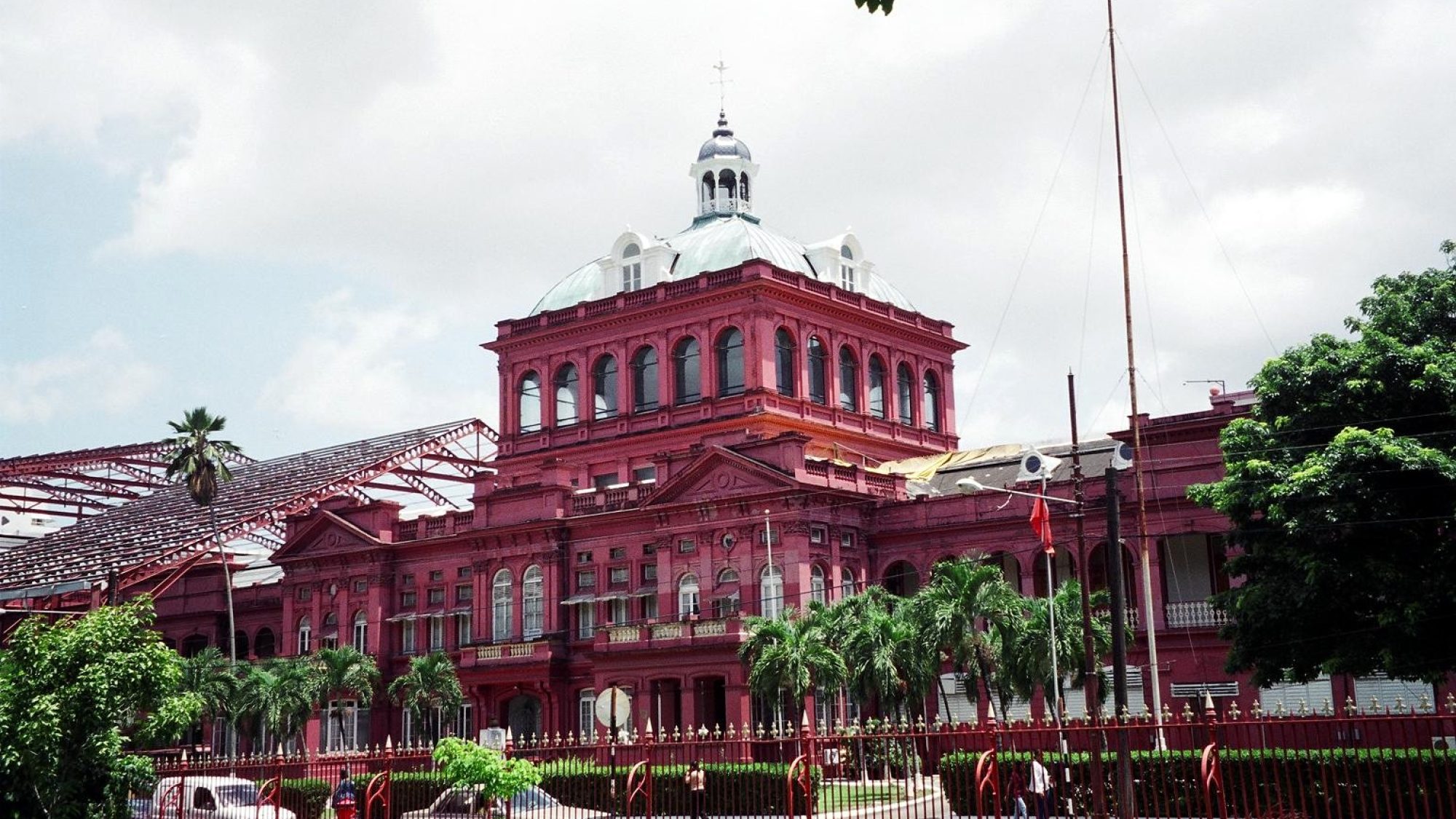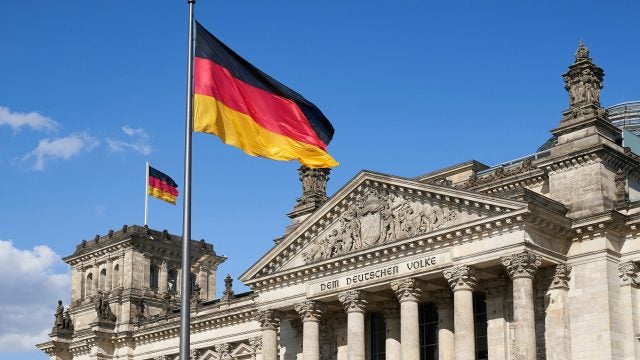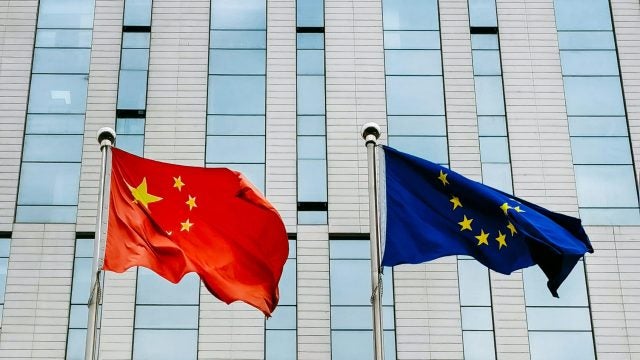
Title: Latin America and the Caribbean’s Asymmetrical Engagement with China during the COVID-19 Pandemic
Exclusive focus on Chinese motivations for engaging Latin America and the Caribbean (LAC) discounts the agency and influence regional leaders exhibit, particularly in crisis situations. During the COVID-19 pandemic, LAC leaders leveraged their asymmetrical relationships with China and other global actors to shape international discussions on inequitable vaccine access or to procure development assistance. Through strategies of problem re-definition and autonomy enhancement, LAC governments used regional and international forums to draw attention to the needs of the developing world and small states—an example of their ability to asymmetrically influence global politics and bilateral relationships.
The COVID-19 pandemic created unprecedented global circumstances, straining rich countries and the developing world alike, but disproportionately affecting the latter. While lives were lost and economies suffered significant contractions, the pandemic also changed the web of interactions that make up the international system. The developing world––in particular, Latin America and the Caribbean (LAC)–– saw new and more frequent interactions with great and rising powers. In the context of diminishing US unipolar dominance and increased regionalism, developing countries discovered new ways and benefits of diversifying foreign and economic relations.[1] In 2021, the United States, China, Russia, and India all enhanced engagements with the LAC region as COVID-19 assistance, vaccines, and economic relief were needed.
Within this shifting landscape, Chinese engagement with LAC dominated policy analysis and scholarship across the Americas, which prompted one-sided discussions focusing primarily on Chinese objectives and motives. Scholars and analysts have argued that Chinese vaccine distribution efforts exerted influence on LAC allies and that the destabilizing effects of the pandemic have created new spaces for China to pursue its economic ambitions. While these arguments hold weight, an important point is missing: how LAC governments and leaders have courted China. LAC governments and leaders used two strategies to influence global politics and their relations with China: problem re-definition and autonomy enhancement. Both strategies helped LAC governments create a global narrative conducive to Chinese aid and allowed them to navigate US-China tensions to secure COVID-19 resources more quickly and in greater quantity. Understanding Chinese-LAC relations through the lens of these two strategies provides a deeper understanding of the agency of LAC countries and the influence exerted by their governments and leaders, bilaterally and internationally, to secure the requisite resources to combat the pandemic’s effects.
In this context, an asymmetrical framework is a useful device to examine the dynamic nature of Chinese-LAC relations. China and LAC maintain asymmetrical relationships; China, as a global economic and materially wealthy power, operates as the stronger state and LAC countries as weaker ones. Nevertheless, LAC countries may take advantage of this relative asymmetry by skillfully adapting to or counterbalancing it with other asymmetric relations (such as US-LAC interactions) or global circumstances (in this case, the pandemic).
During the pandemic, weaker states have influenced and exhibited asymmetrical agency vis-à-vis stronger powers more frequently and assertively for two reasons: (1) the urgency of the pandemic meant that weaker states needed support and resources at a faster rate relative to other global challenges, such as slow-onset climate change events; and (2) the pandemic emphasized global inequality due to resource gaps between wealthy nations and the developing world. Wealthier countries were able to cushion the economic fallout and provide vaccines to their citizens faster than in the developing world. To date, full dosage vaccination rates for lower-middle-income (26.7 percent) and low-income (2.8 percent) countries rank well below high-income (67.1 percent) and upper-middle incomes (62.7 percent) ones.
In quickly seeking resources to offset the pandemic’s effects, LAC countries pushed for new economic agreements and vaccine shipments with China by reshaping global and bilateral narratives and relationships. This article will focus on two such strategies of influence and agency: problem re-definition, highlighting how LAC governments shaped global discussions on vaccine inequity, which created new opportunities for China to promote South-South cooperation via COVID assistance, and autonomy enhancement, where LAC governments, notably Trinidad and Tobago (TT), used US-Chinese dynamics to create flexibility within its network of bilateral relations. Each interaction can rightfully be viewed as part of Chinese ambition to strengthen relations with LAC but can also be seen as developing states asserting agency to advance their own domestic and regional objectives.
Problem re-definition
At an international level, problem re-definition enables weaker states to asymmetrically influence global discussions despite their limited material resources. During the pandemic, multiple LAC governments, in alignment with much of the developing world, used national, regional, and international fora to shift the focus of global conversations from the triumph of COVID-19 vaccine development to inequitable distribution. Once vaccines were developed, the global dialogue centered on which countries would get vaccines first. Western nations and others, such as China and India, raced to develop and produce their own vaccines, initially for domestic consumption and subsequently to achieve foreign policy objectives. LAC governments recognized that vaccine access was likely to parallel global inequality. As a result, many leaders took to international stages to signal their displeasure and promote a new narrative––one that argued that the developing world was being left behind and richer nations should provide economic and material support. Mexican President Andres Manuel Lopez Obrador accused the world’s richest nations of “hoarding” vaccines. Jamaican Prime Minister Andrew Holness used the same term a month prior and, gradually, LAC leaders adopted it in their speeches. This coincided with a collective statement from the Community of Latin American and Caribbean States on the need for equitable access to vaccines and subsequent remarks by TT’s Prime Minister Keith Rowley at the World Health Organization as Chair of the Caribbean Community.
By utilizing this rhetoric, LAC leaders helped redefine the pandemic, framing it not only as a global and shared problem but one that disproportionately affected the developing world. LAC countries contributed to global discussions by creating urgency among wealthy countries and bringing heightened attention to this issue. This problem re-definition opened a new space for diplomacy between large and small nations. As LAC leaders broadened the space for engagement, policymakers from countries with more resources found additional avenues to build goodwill. China was well-prepared for global vaccine distribution at an early stage and successfully capitalized on this opportunity. China and India were among the first to facilitate the supply of vaccines to their diplomatic allies in LAC.
Autonomy enhancement
Weaker states used autonomy enhancement as a strategy to help create more flexibility in their bilateral relations, exemplified by Trinidad and Tobago’s relations with China. Maintaining multiple, strong relationships with great and rising powers means that TT is not beholden to the positions of just one. This is contrary to zero-sum scenarios that frame US-Chinese engagement with LAC or new discussions on active non-alignment which argue that a country should remain distant and neutral amidst great power competition. TT has a long history of using autonomy enhancement. As a small state located close to the United States, it has maintained close relationships with Cuba, China, and Venezuela’s Nicolas Maduro, while still remaining a US ally. There are few repercussions to maintaining these relationships despite US condemnation of each of the listed governments or regimes. Despite support from China and engagement with Maduro, TT’s Prime Minister spoke with US Vice President Kamala Harris, held discussions with members of Congress, and welcomed former Commander of US Southern Command Admiral Craig Faller. During the pandemic, TT successfully continued this strategy and leveraged its asymmetrical relations with both China and the US to acquire economic assistance and vaccines.
Often, the narrative is that China influences LAC countries that the United States neglects. But few scholars focus on how TT’s consistent and sustained management of Chinese relations over a longer period benefits the country. For instance, TT’s pre-pandemic courting of China led to a more natural transition to discussions about vaccine access and pandemic assistance. Prior to the pandemic, TT was one of the few Caribbean countries to sign onto China’s Belt and Road Initiative in 2018, the culmination of TT’s Prime Minister Keith Rowley’s visit to the country. In 2019, China and TT signed a framework agreement for a concessional loan valued at US $104 million. Therefore, in October 2020, when Prime Minister Rowley began discussions with China about vaccines, it was as an extension of pre-existing relations. TT’s diligent cultivation and stewardships of relations with China allowed Chinese vaccines to arrive in greater quantities than neighboring Caribbean countries.
Conclusion
As the pandemic continues, China will continue to aid LAC and other parts of the world, likely reinforcing an evolving global order where the balance of power is shifting from the hands of the United States and China to growing regional hegemons.[2] With a new dispersion of power comes greater flexibility for weaker states to exercise and amplify their agency in bilateral and international settings. During the pandemic, LAC governments, individually and collectively, used problem re-definition and autonomy enhancement techniques to secure access to vaccines and make their voices heard in global discussions, a display of strong, asymmetrical agency vis-a-vis China—and other powers—that has always existed yet is often overlooked.
Agency is attained from strategies LAC countries employ to achieve their bilateral, regional, and international objectives as well as through their citizens. Public perception of external country engagement contributes to domestic consensus, which directly and indirectly can influence foreign policy decisions. New circumstances that expose global material inequities, whether a continued pandemic or worsening effects of climate change, will provide new opportunities for regional governments to exert influence in their relations with China. As a result, the asymmetrical framework will become more relevant to shaping and understanding the next stage of Chinese-LAC relations.
[1] Amitav Acharya, The End of American World Order (Cambridge: Polity Press, 2014).
[2] Charles Kupchan, No One’s World: The West, the Rising Rest, and the Coming Global Turn (New York: Oxford University Press, 2012).
…
Wazim Mowla is the assistant director of the Caribbean Initiative at the Adrienne Arsht Latin America Center and is author, most recently, of The Cycle of Risk: Impact of Climate Change on Security in the Caribbean.
Pepe Zhang is an associate director & fellow of the Atlantic Council’s Adrienne Arsht Latin America Center and is co-author, most recently, of LAC 2025: Three Post-COVID Scenarios and China-LAC Trade: Four Scenarios in 2035.
Image Credit: Random 00021 at CC BY-SA 3.0, https://commons.wikimedia.org/w/index.php?curid=23038639
More News

This article contends that South Africa’s 2025 G20 presidency presents a critical opening to shape governance of critical mineral supply chains, essential for renewable energy, digital economies, and national…

Germany’s economy is being throttled by a more competitive China that has usurped its previous manufacturing dominance in many industries. In response, Germany has doubled down on the China bet…

In 2021, the European Union (EU) attempted to assert itself in the Indo-Pacific arena to increase its geopolitical relevance by releasing an ambitious and multifaceted Indo-Pacific Strategy. However, findings from…